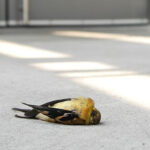Flies are more than just a nuisance; they can be vectors of disease and a significant source of annoyance in any home. Understanding How To Detract Flies is crucial for maintaining a clean, healthy, and comfortable living environment. This guide provides effective strategies and actionable tips to keep these buzzing pests away from your property, focusing on prevention and smart repellent techniques.
Understanding Fly Attraction: What Brings Them In?
Before we delve into how to deter flies, it’s important to understand what attracts them in the first place. Flies are primarily drawn to environments that offer food and breeding grounds. Decaying organic matter is a major attractant, making your garbage cans, compost piles, and even pet waste prime targets. Fruit flies, specifically, are notorious for their love of overripe or fermenting fruits and vegetables. Uncleanliness, in general, is an open invitation for flies to invade your space.
Proactive Prevention: The First Line of Defense
Prevention is always more effective than reaction when it comes to pest control. Here’s how to proactively detract flies from your home:
- Maintain impeccable sanitation: Regularly clean garbage cans, both inside and out. Ensure they have tight-fitting lids. Promptly clean up any spills, especially food and drink residues.
- Manage pet waste: Pet feces in your yard are a significant fly attractant. Make it a habit to remove pet waste daily to minimize fly breeding grounds.
- Compost pile placement and management: If you compost, locate the pile as far from your house as possible. Avoid composting meat, dairy, and oily foods, as these can attract flies and other pests. Bury fruit and vegetable scraps deeply within the pile to reduce odors and accessibility to flies.
- Lawn and garden care: Keep your lawn and garden tidy. Spread grass clippings thinly after mowing to ensure they dry quickly. Clumps of damp grass clippings and dead leaves provide ideal conditions for flies.
Effective Fly Repellents: Natural and EPA-Registered Options
When prevention isn’t enough, or to reinforce your fly-detracting efforts, repellents can play a key role. There are two main categories of fly repellents:
EPA-Registered Insecticides
These products have undergone rigorous testing by the Environmental Protection Agency (EPA) for safety and effectiveness when used according to label directions. Look for an EPA registration number on the product label to ensure you are using an approved insecticide. These insecticides are often synthetic and designed for broad pest control, including flies.
Natural Fly Repellents
For those seeking more natural solutions, several options are suggested to deter flies. While these are not EPA-registered for efficacy, anecdotal evidence and some studies point to their potential:
- Herbs and Plants: Certain plants are believed to naturally repel flies. Consider planting Mexican marigolds, mint, rosemary, lavender, yarrow, and pitcher plants around your garden and home perimeter.
- Essential Oils: The strong scents of eucalyptus, peppermint, and lemongrass essential oils may deter flies. You can diffuse these oils or create a diluted spray to apply around doorways and windows (always test on a small, inconspicuous area first).
Debunking Myths: Vinegar, Citronella, and Fly Repellency
It’s important to clarify some common misconceptions about fly repellents:
- Vinegar: Contrary to being a repellent, vinegar actually attracts flies. However, this can be used to your advantage in a fly trap. A simple trap can be made by filling a container with vinegar and adding a few drops of dish soap. The vinegar lures flies in, and the dish soap breaks the surface tension, causing them to drown.
- Citronella: Citronella is indeed a fly repellent. Its strong odor is disliked by flies, making citronella candles and oils useful for deterring flies in outdoor areas. However, citronella primarily repels rather than kills flies, and its effectiveness can be limited by wind and the concentration of the product.
Seeking Professional Help
For persistent or heavy fly infestations, or if you need guidance on the most effective and safe fly control strategies for your specific situation, consulting a pest control professional is advisable. They can offer tailored solutions, recommend appropriate EPA-registered products, and provide expert advice on long-term fly prevention.
By implementing these comprehensive strategies, from proactive sanitation to utilizing effective repellents, you can significantly detract flies and enjoy a more comfortable, fly-free environment in and around your home.

